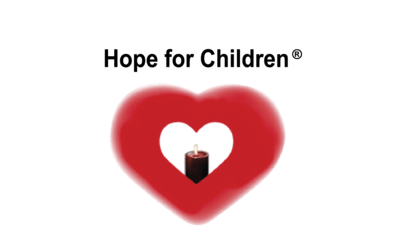Making a Federal Case Against Domestic Violence Against Women’s Act
Protecting Women, Children and Men from Domestic Violence on a Federal level within each State of the United States of America.
What is the Violence Against Women Act (VAWA)? Protecting Children, Women and Men
■ VAWA prohibits interstate travel with intent to commit domestic violence.
■ VAWA prohibits interstate travel to violate a protection order.
■ VAWA prohibits the possession or transfer of a firearm under certain circumstances.
■ All VAWA offenses are felonies.
Violence Against Women’s Act – Why Choose a Federal Remedy?
■ PENALTIES: Applicable state penalty PENALTIES: Applicable state penalty may not “fit the crime”. may not “fit the crime”.
■ ABILITY TO GATHER EVIDENCE: ABILITY TO GATHER EVIDENCE: Interstate crimes make it difficult for Interstate crimes make it difficult for local agencies to obtain evidence. local agencies to obtain evidence.
■ BOND: May be easier in federal court BOND: May be easier in federal court to hold defendant without bond. to hold defendant without bond.
■ RULES OF EVIDENCE: Evidence may RULES OF EVIDENCE: Evidence may be excluded in state court.
The Crimes
■ Interstate Domestic Violence Interstate Domestic Violence
■ Interstate Stalking Interstate Stalking
■ Interstate Violation of Protective Order Interstate Violation of Protective Order
■ Firearm Offenses Firearm Offenses • people subject to protective orders people subject to protective orders • people convicted of domestic violence people convicted of domestic violence misdemeanors misdemeanors
Interstate Domestic Violence: Violator Travels
■ Travel with intent to injure, and then Travel with intent to injure, and then actually injure an “intimate partner.” actually injure an “intimate partner.”
■ It is a federal crime to cross a state line It is a federal crime to cross a state line with intent to injure, harass or intimidate with intent to injure, harass or intimidate an “intimate partner”, and then an “intimate partner”, and then intentionally commit a crime of violence intentionally commit a crime of violence which causes bodily injury to the which causes bodily injury to the intimate partner. 18 U.S.C. 2261(a)(1). intimate partner. 18 U.S.C. 2261(a)(1).
Presenter: Mike McCrum, former Assistant United States Attorney Western District of Texas, San Antonio, Texas.
Violence Against Women Act
Instructor Mike McCrum
VAWA
Programs and services
The Violence Against Women laws provide programs and services, including:
- Federal rape shield law.
- Community violence prevention programs
- Protections for victims who are evicted from their homes because of events related to domestic violence or stalking
- Funding for victim assistance services, like rape crisis centers and hotlines
- Programs to meet the needs of immigrant women and women of different races or ethnicities
- Programs and services for victims with disabilities
- Legal aid for survivors of domestic violence
Restraining orders
The beneficiary of an order of protection, per VAWA it is generally enforceable nationwide under the terms of full faith and credit. Although the order may be granted only in a specific state, full faith and credit requires that it be enforced in other states as though the order was granted in their states.
Persons who are covered under VAWA immigration provisions
VAWA allows for the possibility that certain individuals who might not otherwise be eligible for immigration benefits may petition for US permanent residency on the grounds of a close relationship with a US citizen or permanent resident who has been abusing them. The following persons are eligible to benefit from the immigration provisions of VAWA:
- A wife or husband who has been abused by a U.S. citizen or permanent resident (Green Card holder) spouse. The petition will also cover the petitioner’s children under age 21.
- A child abused by a U.S. citizen or permanent resident parent. The petition can be filed by an abused child or by her parent on the child’s behalf.
- A parent who has been abused by a U.S. citizen child who is at least 21 years old.
Coverage of male victims
Although the title of the Act and the titles of its sections refer to victims of domestic violence as women, the operative text is gender-neutral, providing coverage for male victims as well. Individual organizations have not been successful in using VAWA to provide equal coverage for men. The law has twice been amended in attempts to address this situation. The 2005 re-authorization added a non-exclusivity provision clarifying that the title should not be construed to prohibit male victims from receiving services under the Act. The 2013 re-authorization added a non-discrimination provision that prohibits organizations receiving funding under the Act from discriminating on the basis of sex, although the law allows an exception for “sex segregation or sex-specific programming” when it is deemed to be “necessary to the essential operations of a program. Jan Brown, the Founder and Executive Director of the Domestic Abuse Helpline for Men and Women contends that the Act may not be sufficient to ensure equal access to services.
Related developments
Official federal government groups that have developed, being established by President Obama, in relation to the Violence Against Women Act include:
The White House Council on Women and Girls and the White House Task Force to Protect Students from Sexual Assault. Both groups are to help improve and/or protect the well-being and safety of women and girls in the United States.
We cannot thank you enough for educating yourself about your legal rights on a federal level throughout the United States of America.
Most Respectfully,
Hope for Children Foundation Board of Director Members

